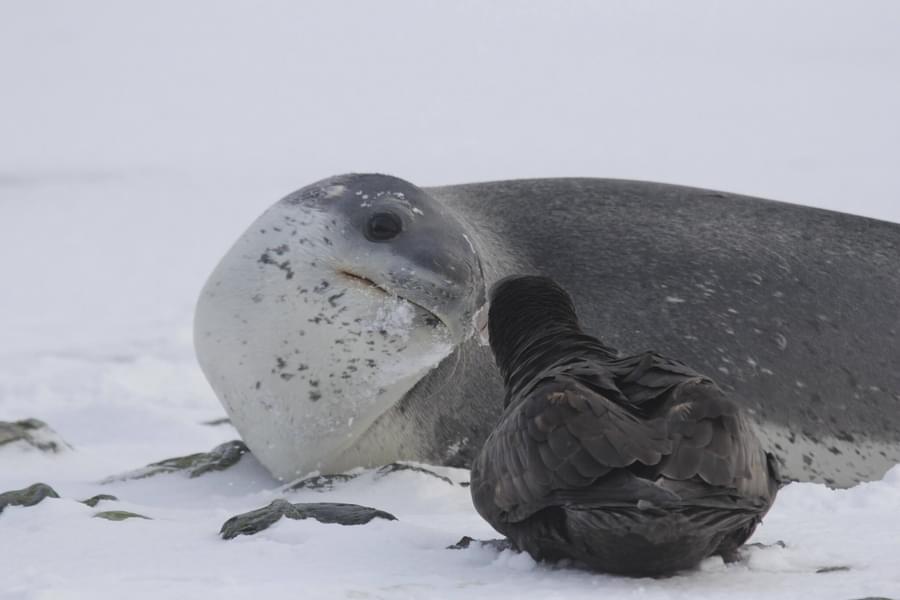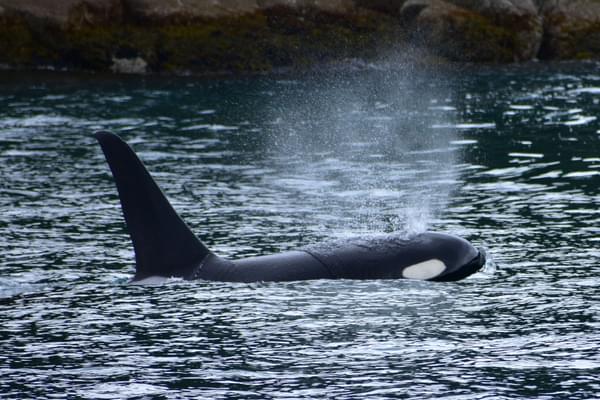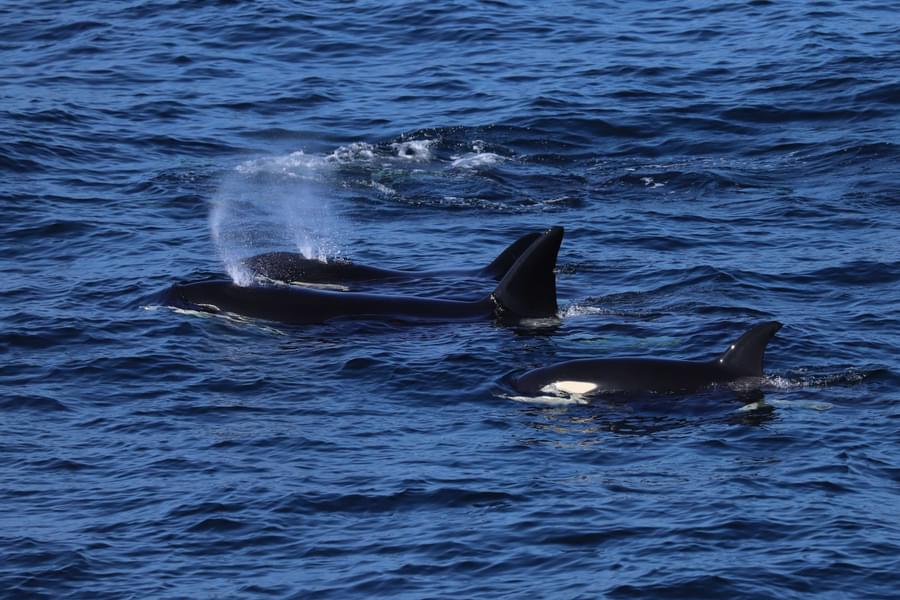Last week we explored the playful mystery of humpback whales blowing perfect bubble rings — seemingly just for us. This week, we dive into something even more astonishing: killer whales seemingly offering humans gifts of food.
New research published in Journal of Comparative Psychology, has recorded 34 cases across four oceans where orcas — from calves to adults — have approached people with what appear to be deliberate offerings. These included fish, marine mammals, squid, birds, even seaweed. The humans were in boats, swimming, or simply standing on the shore. In most cases, the orca paused after the “gift,” appearing to wait for a reaction — a moment of curiosity, almost as if testing our response.
This kind of behaviour, known in scientific terms as interspecific generalized altruism, is incredibly rare in wild animals — especially apex predators (leopard seals being another curious example).

As humans, we regularly feed animals (from pigeons to pets), but evidence of wildlife trying to feed us is almost unheard of. But there’s a fascinating parallel here: corvids — birds like crows and magpies — are known to bring people shiny objects, colourful stones, or bits of shell. In some kind of mysterious exchange system, they seem to reward those who have fed or helped them. It’s behaviour that hints at intelligence, memory, and something that feels a little like a transactional relationship.
Could killer whales be doing something similar? Orcas are, of course, extraordinarily intelligent. They live in close-knit family groups, pass down knowledge through generations, and communicate in complex dialects. They also regularly share food with each other — not just with close kin, but as part of intricate social dynamics. So food is much more than just nourishment - its extraordinarily important and not something that is given away randomly.
Extending that behaviour to humans might reflect a kind of experimental outreach — an attempt to connect, or at least to see how we might respond. In his 2016 book The lives of Hawai 'i's dolphins and whales: natural history and conservation, Robin Baird describes the following eye-opening incident;
“In 1984, researcher Dan McSweeney was following a group of false killer whales off the Kona Coast and slipped into the water with a mask, a small scuba tank, and an underwater camera. Two black shapes moved by below, vocalizing. Dan turned, and a third individual was swimming rapidly toward him, carrying most of a large ‘ahi, a yellowfin tuna, weighing over 45 kilograms (kg) (100 pounds [lbs]). The whale stopped a couple of metres away and opened its mouth, letting the fish go, and the momentum carried the fish toward Dan. The whale was obviously offering the fish to him, and Dan reached out and took it. The false killer whale started blowing bubbles, moved away, then turned rapidly and came back, stopping next to him again. Dan pushed the fish back toward the whale; it took it slowly and deliberately, then moved away and joined its companions. The whales passed the fish back and forth and started to consume it, and all had a share."
This isn’t just about curiosity. It may speak to a deeper kind of sentience — an intelligence capable of empathy, of experimentation, of trying to actively bridge the divide.
At ORCA, our work is grounded in the idea that whales and dolphins are not just species to be conserved, but individuals with minds, cultures, and lives of their own. Stories like this nudge us to rethink our own place in the natural world — and what it might mean to be invited into a conversation we’ve only just begun to understand.
Help ORCA to protect whales and dolphins

ORCA's work to protect whales and dolphins has never been more important and to help safeguard these amazing animals for the future we need your help. Please support our work by donating at www.orca.org.uk/donate to help us create oceans alive with whales and dolphins

